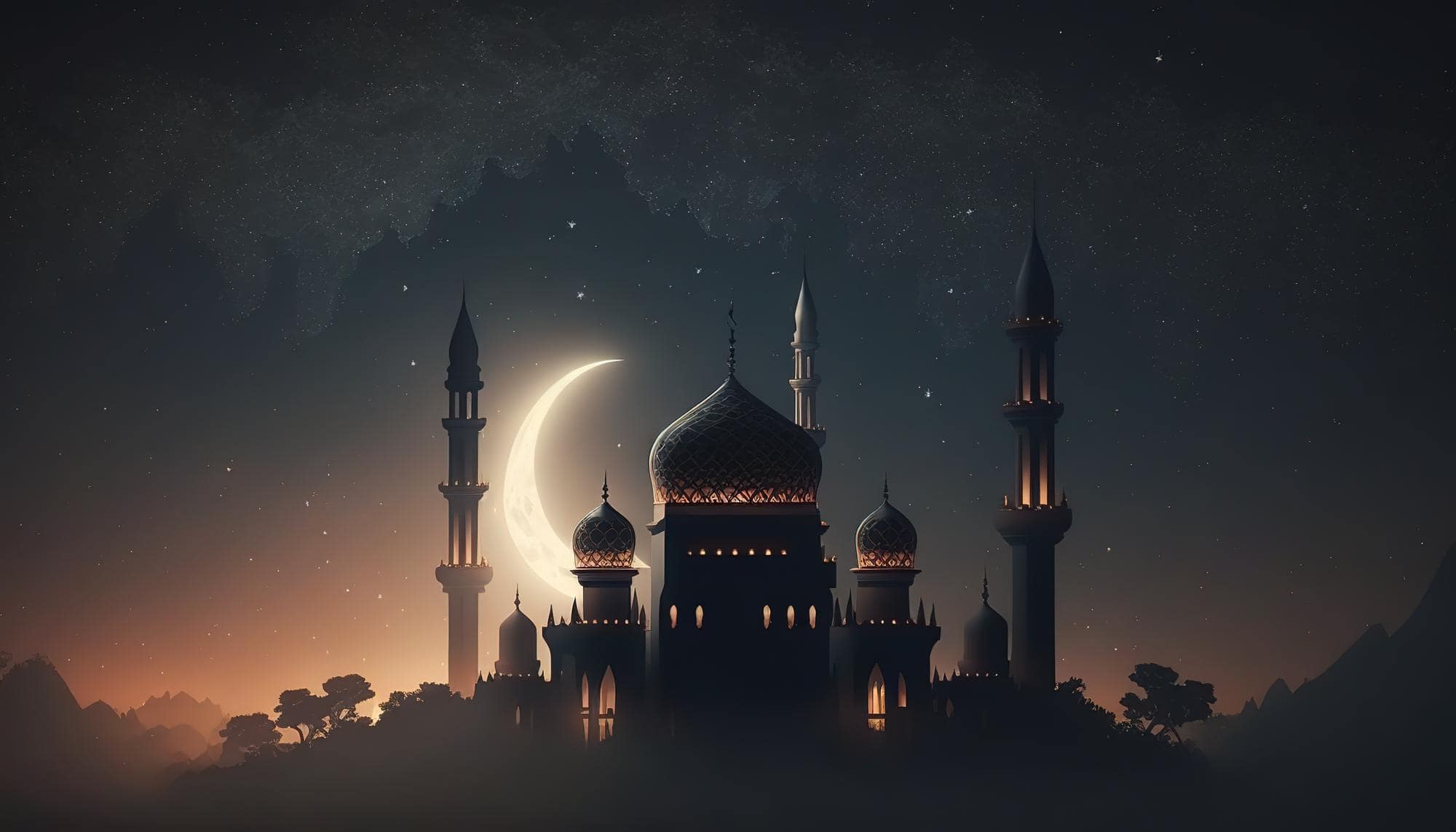
53 interesting facts about Ramadan
321
Ramadan is the ninth month of the Islamic calendar and a time of fasting and spiritual reflection for millions of Muslims around the world. During this holy month, from dawn to sunset, faithful Muslims abstain from food, drink, smoking, and sexual activity, focusing on prayer, reflection, and community. The fast is broken each evening with a communal meal called iftar, and there are many traditions and customs associated with Ramadan. The month’s importance is underscored in its many diverse practices and its central place in Islamic faith.
- Ramadan lasts 29 or 30 days, depending on the sighting of the moon.
- Fasting during Ramadan is one of the Five Pillars of Islam, fundamental practices for all adult Muslims.
- The exact beginning of Ramadan varies each year because the Islamic calendar is lunar.
- Suhur is the pre-dawn meal consumed before the fast begins.
- Iftar is the evening meal that breaks the fast.
- During Ramadan, Muslims also engage in increased prayer and recitation of the Quran.
- Charity is highly emphasised during Ramadan, and many Muslims pay Zakat, a form of almsgiving.
- The Night of Power or Laylat al-Qadr falls within the last ten days of Ramadan, believed to be the night the Quran was revealed to the Prophet Muhammad.
- Fasting is obligatory for adult Muslims, except for the sick, elderly, pregnant, nursing, travelling, or menstruating.
- Some countries release prisoners or reduce sentences in honour of Ramadan.
- Many businesses and schools in Muslim-majority countries have reduced hours during Ramadan.
- In some countries, eating or drinking in public during fasting hours can be penalised.
- Dates are traditionally eaten to break the fast, following the practice of the Prophet Muhammad.
- Special nightly Tarawih prayers are performed at the mosque during Ramadan.
- Ramadan ends with the celebration of Eid al-Fitr, a festive day of feasting and giving gifts.
- The greeting “Ramadan Mubarak” is commonly used, meaning “Blessed Ramadan.”
- Fasting helps in spiritual reflection, self-discipline, and empathy for the less fortunate.
- A fast is considered broken if one intentionally eats or drinks, and must be made up later.
- Fasting also includes abstaining from gossip, lies, and other sinful behaviour.
- In some cultures, lanterns are used as decorations symbolising hope and light.
- Special foods and recipes are prepared for both suhur and iftar, varying by culture.
- Shopping for new clothes and giving to the poor is a common practice before Eid al-Fitr.
- Many Muslims also perform a spiritual retreat called Itikaf during the last ten days of Ramadan.
- Some Muslims read the entire Quran during the month of Ramadan.
- Community iftars often include people of different faiths as a sign of solidarity and friendship.
- Islamic scholars issue fatwas, legal opinions, to help Muslims adhere to the Ramadan rules.
- Healthy adult Muslims make up the fast if missed, while those unable to fast might feed a poor person instead.
- Children are encouraged to fast for part of the day to prepare for adult responsibilities.
- Iftar often begins with the call to the Maghrib prayer, the fourth of five daily prayers.
- In polar regions where the sun may not set, some Muslims follow Mecca time for fasting.
- A common misconception is that Muslims fast to empathise with the poor, but it’s primarily a spiritual act.
- Physical activities might be limited during fasting hours to conserve energy.
- The beginning of Ramadan marks the anniversary of the Quran being revealed.
- Ramadan promotes social cohesion, with many community events and gatherings.
- Markets and bazaars often stay open later at night for shopping after iftar.
- The first fast is considered a rite of passage for young Muslims.
- During World War I, the Ottoman Empire declared jihad during Ramadan.
- Ramadan has been observed by several non-Muslim political leaders as a sign of respect.
- Some athletes have competed in major events while observing the fast.
- In many countries, television shows, and special broadcasts are prepared specifically for Ramadan.
- During Ramadan, crime rates are reported to drop in some Muslim-majority countries.
- The Quran has verses (ayahs) specifically referring to Ramadan and fasting.
- Some non-Muslims voluntarily fast to understand the experience and show solidarity.
- Health experts suggest that fasting can have detoxifying effects and promote mental clarity.
- Ramadan elevates the sense of unity in the Muslim Ummah, the global Muslim community.
- Fasting days can vary greatly in length depending on geographical location.
- Collective prayers, meals, and visits strengthen family and community ties.
- In many cultures, cannons are fired to signal the end of each fasting day.
- Some airlines offer iftar meals on flights during Ramadan for fasting passengers.
- Many Muslims also engage in self-reflection and set personal goals during Ramadan.
- Muslims believe that the rewards for good deeds are multiplied during Ramadan.
Ramadan is a multifaceted month that goes beyond fasting, encompassing prayer, charity, community, and self-improvement. The various practices and traditions seen during this month highlight the diversity and unity of the global Muslim community. Observing Ramadan helps in spiritual growth, self-discipline, and fosters empathy and compassion. The shared experience of Ramadan creates bonds across cultures and societies, reinforcing the principles of peace, reflection, and humanity that are central to the Islamic faith.
Ramadan is the ninth month of the Islamic calendar and a time of fasting and spiritual reflection for millions of Muslims around the world. During this holy month, from dawn to sunset, faithful Muslims abstain from food, drink, smoking, and sexual activity, focusing on prayer, reflection, and community. The fast…
 MillionFacts
MillionFacts 